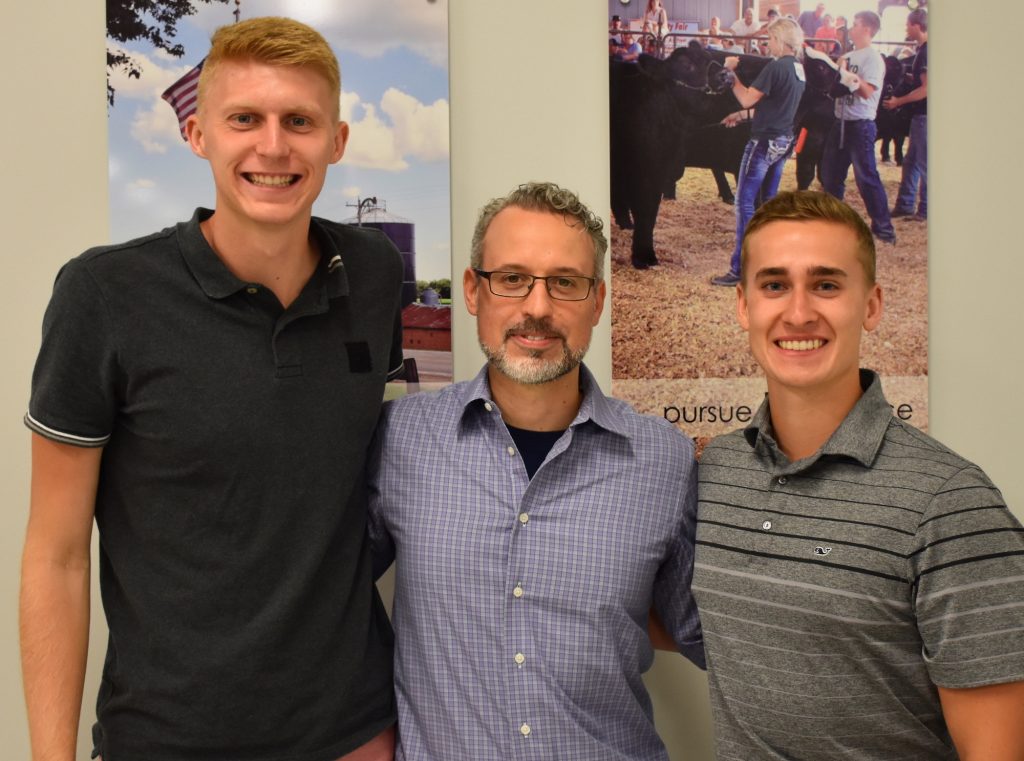Masculinity and Vulnerability in Fraternities
Author: annober
Author: annober

In August, the FarmHouse Fraternity had their retreat to kick off the beginning of the semester. One of the events they decided to include was a talk on masculinity and vulnerability.
“There is no secret behind what the general public thinks of fraternity life. I think most people assume the type of men that are involved in fraternities is that of negative connotation. Whether that be how we see and perceive women, or how we’re living our lives.” Isaac Arnold, a current junior at Iowa State University and Vice President of FarmHouse Fraternity, expressed.
Arnold wants to work to change that stigma around fraternity men. He and other members of FarmHouse Fraternity wanted to bring in a speaker to focus specifically on vulnerability to stress among his brothers that it’s okay to not be okay and to seek help when they need it. He, along with others, thought Dr. Goebel would be the perfect person to lead this conversation.
Dr. Michael Goebel is a current faculty member at Iowa State University in the Women’s and Gender Studies Program. He has been teaching since 2011, and specifically on masculinities since 2016, though he’s always found a way to weave it into his syllabi.
Dr. Goebel was blown away at the fact that he was contacted by the fraternity to speak about masculinity and vulnerability.
“A lot of men don’t want to think about what it means to be a man in this particular moment,” he said.
In his talk with the fraternity, Dr. Goebel started out by discussing what it means to be masculine, where the definition stems from, and how culture plays a huge role in how men are taught to behave— whether it be through teasing or torturing or maintaining cultural norms of “manhood.” Part of the problem, says Goebel, is the lack of questioning the representation we see of fraternity men in society’s culture.
“What Dr. Goebel did is kind of expressing why we have this tendency to feel this way,” Arnold commented. “[Why we] feel like it’s not okay to ask for help, [but] why it is okay to ask for help and why we need to do it.”
Dr. Goebel also touched on how valuable it is to be vulnerable.
“Being vulnerable ends up being an asset that inspires other people to reach in, dig deep and want to push forward,” says Goebel. “These men are going to be the leaders of the next generation[…] and each of them has the potential to add complexity to and confound expectations of masculinity and get young boys or men to think about these things.”
The men of the fraternity were very accepting of the information Dr. Goebel presented, evidenced by the line of men wanting to talk to Dr. Goebel afterward. Arnold had a change in the way he viewed masculinity before and after the event.
“You don’t exactly have to fit into that mold that society says we should be in. That’s one of the things that Dr. Goebel touched on and really changed my definition of what masculinity is.”
Goebel believes that conversations such as these are important, as they are not happening widely enough and have the opportunity to be a catalyst for change.
“The value is that it has the power to actually change the entire shape of society as we know it.”